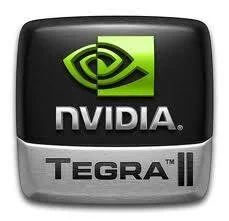Today in Las Vegas, Nvidia CEO Jen-Hsun Huang took center stage to highlight the power of the company’s Tegra 2 chip.
According to Huang, the dual-core SoC will be integrated into various next-gen mobile devices, including “the world’s first super phone” – LG’s Optimus 2x.
He noted that the Optimus 2x heralds the future of “the super phone revolution,” with its ability to run Flash, multitasking, and console quality gaming all on a mobile phone.

Jen-Hsun began his speech with a bit of nostalgia. He reminisced about the golden days of 1995 when Windows 95 was announced, transforming the computer from an office management tool into a personal computing tool.
He also talked about the movements towards storing photos and watching video, and the ultimate connection of computers through networks and the Internet.
Taking a moment to pause, Huang mentioned that CES 2011 would be a year we look back on and remember as a special time. An era when the way we experience technology is shifting to mobility, moving from PC to mobile computing.
“This particular CES, you’re going to see the pieces come together. The landscape is changing and in quite dramatic ways actually. If you think about it, your most personal computer changed from a PC to a mobile device.
“The way you use it, what you use it for, the company that builds it, where you buy it, how you enjoy the software and buy has now completely changed.
Jen-Hsun remembers tasking Nvidia to build the Tegra 2 chip, telling his team, “I need you guys to design a processor that is 100 times more energy efficient than that in a PC because we need it to fit in your pocket. You take a computer with you to enjoy content. You’re not developing spreadsheets or writing C+. You’re watching movies, you’re playing games and this device needs to do all these things.”

Of course, what may have initially appeared to be daunting task eventually became the Tegra 2 chip. By teaming with Adobe, Nvidia was able to create an SoC that flawlessly runs Flash-based sites at super high speeds and delivers content in 1080p HD.
Jen-Hsun Huang described that the changing landscape of mobile computing has put new pressure on companies to create mobile phones that can keep up with the enhanced performance standards. This new market of “Super Phones,” led directly into LG and Nvidia’s joint announcement of the Optimus 2x, the first Tegra 2 powered smartphone.
What this means for the user is a full web experience with Flash capabilities, video in 1080p, games, and multitasking. With over 120 billion gigabytes of content in Flash online between videos on websites and even ads, this makes for a seamless transition between a web and mobile based experience.
Jen-Hsun Huang went on to connect the LG Optimus Black to the HD TV on stage, opening up various apps and ultimately Angry Birds, playing the game on the full screen in console-like quality.

“Making things enjoyable is the point,” said Jen-Hsun.
At the conference, Nvidia also announced future partnerships with Verizon Wireless in their 4G LTE smartphone endeavors powered by Tegra 2.
With new LTE 4G announcements, Verizon’s speed will go from 130 millisecond 3G speed to around milliseconds, which lends itself to a new mobile experience, perfect for multiplayer gaming, video streaming, and the web.
Manrique Brenes, Director platform product management at Skype talked about the implications for HD video chat, which lends itself into chat via tablet or even on airlines.
Finally, Nvidia confirmed the rumor that it is indeed building a CPU, nicknamed “Project Denver,” a high performance ARM core. This full custom processor – based on ARM technology – is Nvidia’s first CPU development with veterans from all over the industry to build the world’s first ARM processor that is targeted at high power computing.
“We wanted to expand the reach of this architecture. With all the energy around ARM from developers, the one thing they wish they could have is to extend investment beyond mobile computing into super computers, cloud computers, etc,” explained Huang.
“This is certainly a game changer for us. [Especially] with Apple, Google, and rumors of Microsoft promoting the ARM processor.”






